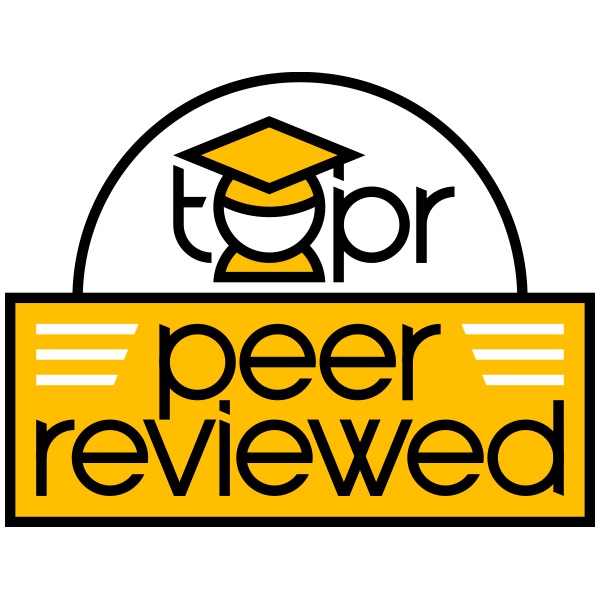
Meeting the needs of students in online courses is essential in today’s educational landscape. When asked about aspects of online courses that are important to them, students repeatedly indicate that features that help them feel comfortable with the structure, format, and expectations of the course are of utmost importance (Hixson, Buckenmeyer, & Barczyk, 2015; Ralston-Berg, 2014; Sadaf, Martin, & Ahlgrim-Delzell, 2019).
One way to include this critical information is to create a clearly indicated Start Here section of an online course that includes information on the course’s structure and format and the instructor’s expectations for students. This section can contain information such as a welcome letter, syllabus, course overview, and online orientation materials (e.g., LMS tutorial, practice with online activity tools) that can help to set students up for a successful start to the course by being clear from the first day how the course will run and what students can do to get the most out of the course. Explicitly directing your students to read this organizational information before they move into instructional content can reduce student confusion and the number of clarifying emails an instructor needs to answer. The strategy suggested here helps to meet the Specific Review Standards in the Quality Matters Rubric General Standard 1.
Link to example artifact(s)
Instructor: Christine Cranford, Ph.D., College of Education, North Carolina State University
Course Title: ENG 332 Communication for Business and Management
In this fully online undergraduate English course, the instructor used the first section of the course to provide a welcome message, class information, orientation to the LMS, and low-stakes activities with the tools and functions that students would later use for graded course activities and assessments.
The decorative banner is completely optional and used to provide visual appeal and distinguish different course modules from one another. Next, the instructor lists the objectives for the module followed by the module tasks. The module learning materials are under a Course Information heading. Materials include:
- Welcome letter – a copy of this document is also sent to students a few days before the course begins. Contents include a brief overview, directions to access the course, an overview of course structure and layout, directions for LMS navigation, and a list of action items before the start of the course.
- Syllabus – the syllabus for this online course is longer than the typical syllabus for face-to-face courses and includes information about the instructor, course delivery and structure, communication policies, course learning outcomes, schedule, learning materials, technology requirements, online learning expectations and etiquette, course and institutional policies, student services, technical support, electronic course components, resources for students with disabilities, course evaluation plans, and a syllabus modification sentence.
- Course Overview – provides more detailed information on how the course works, things students can do to succeed in the course, and how to get technical help.
- Group Discussion Guidelines – because this course includes multiple graded group discussions, the instructor chose to include a grading rubric with expectations, due dates, and guidelines in the Start Here section.
- LMS Tutorial – the instructor provides an optional tutorial for the LMS. The tutorial was created by instructional support services on her campus.
To help students become comfortable with the tools they’ll be using in the course, the instructor also included non-graded activities including:
- An assignment to submit a brief description of their experience with online learning
- A practice quiz about university facts (a quiz about the syllabus is sometimes used instead)
- A discussion forum in which students introduce themselves (some instructors ask students to comment on other students’ posts, but this example does not)
- A choice activity in which student indicate whether they’ve updated their profile in the LMS
The instructor who contributed the examples in this submission, Dr. Christine Cranford, had this to say about the advantages of including a Start Here section:
“Including a Start Here are in ENG 332 has clarified and set a positive tone for the course. Students know where to begin the course and there is one area where they will find important class information. A welcome letter, a teacher introduction, a video introduction to the course, and syllabus is presented in the start here area; more importantly, this type of information sets a positive tone for a course. Students can meet the instructor, learn more about the course objectives, and learn how the course is managed through the LMS. This seems to have helped students be able to focus on the instructional content from the beginning, and I’m getting a lot fewer emails at the start of the course from students requesting basic information.”
Login and Access to NC State Moodle
- Link to course: https://moodle-projects.wolfware.ncsu.edu/course/view.php?id=8107
- Go to Projects User Login → New Projects Users.
- Select “Create new account”
- Set up new account.
- Open confirmation email. The link in email will take you to the course.
Link to scholarly reference(s)
Hixson, E., Buckenmeyer, J., & Barczyk, C. (2015). Closing the feedback loop: Hearing the student voice in course quality. Quality Approaches in Higher Education, 6(1), 26-31.
Ralston-Berg, P. (2014). Surveying learner perspectives of quality: Value of QM Rubric items. Internet Learning, 3(1), 116–126.
Sadaf, A., Martin, F., & Ahlgrim-Delzell, L. (2019). Student perceptions of the impact of Quality Matters-certified courses on their learning and engagement. Online Learning, 23(4), 214-233.
Citation
Sanchez, R., Cranford, C., Tobey, B., Smith, B., Mendoza-Moran, A., & Beeson, C. (2021). Set the stage with a start here section: orient students to course purpose, structure, and expectations. In A. deNoyelles, A. Albrecht, S. Bauer, & S. Wyatt (Eds.), Teaching Online Pedagogical Repository. Orlando, FL: University of Central Florida Center for Distributed Learning. https://topr.online.ucf.edu/set-the-stage-with-a-start-here-section-orient-students-to-course-purpose-structure-and-expectations/.